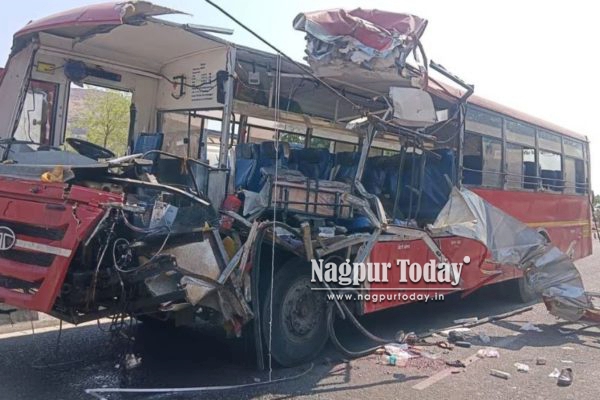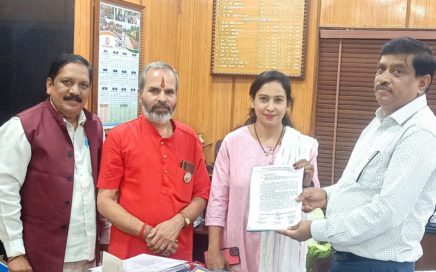
Nagpur: A recent Right to Information (RTI) disclosure has laid bare the alarming state of affairs within the Maharashtra State Road Transport Corporation (MSRTC), revealing a steady and disturbing rise in bus accidents, serious injuries, fatalities, and vehicle breakdowns over the last three financial years.
The data, obtained by Nagpur-based RTI activist Abhay Kolarkar, paints a troubling picture of passenger safety and fleet reliability across the State. According to the MSRTC’s own figures, a staggering 1,234 passengers have died in road accidents involving its buses between 2021 and 2024, with each passing year witnessing an increase in fatalities.
Rising human cost
•In 2022-23, MSRTC buses were involved in 3,014 accidents, leading to 2,450 serious injuries and 343 deaths.
• In 2023-24, the numbers rose sharply to 3,381 accidents, 2,818 injuries, and 421 fatalities.
• By 2024-25, the crisis worsened: 3,563 accidents, 3,234 serious injuries, and 470 passenger deaths were recorded, marking the highest toll in three years.
This escalating trend underlines a growing crisis in road safety, with the RTI data indicating that MSRTC buses are becoming increasingly hazardous for passengers, despite public assurances of robust infrastructure and improved services.
Beyond the accidents, the RTI reply highlights another chronic issue plaguing the state-run transport giant, bus breakdowns. In the past three years alone, nearly 1.97 lakh MSRTC buses suffered breakdowns, forcing urgent repairs and delaying public services.
• 2023-24 saw a record 67,019 breakdowns.
• Although there was a marginal dip in 2024-25 to 66,552 breakdowns, the numbers remain staggeringly high, calling into question the efficacy of MSRTC’s maintenance regime.
The growing casualty numbers and persistent technical failures are indicative of deep-rooted systemic lapses, including poor vehicle upkeep, inadequate inspections, and perhaps overburdened or undertrained personnel.
While MSRTC continues to promote its image as a backbone of public transport in Maharashtra, the RTI data offers a starkly different reality, one of neglected safety norms, declining operational reliability, and rising human cost.
The findings underscore an urgent need for transparent audits, upgraded maintenance facilities, driver training programs, and enhanced passenger safety protocols. Public transport, especially one as vital as MSRTC, cannot afford to compromise on safety or efficiency.
The RTI revelation is not just a wake-up call, it is a red alert. And without immediate reforms, Maharashtra’s roads may continue to bear witness to preventable tragedies.













